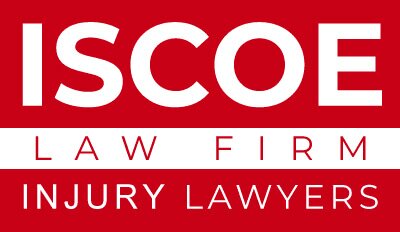Best Restructuring & Insolvency Lawyers in Miami
Share your needs with us, get contacted by law firms.
Free. Takes 2 min.
List of the best lawyers in Miami, United States
About Restructuring & Insolvency Law in Miami, United States
Restructuring and insolvency law in Miami, United States refers to the legal frameworks and processes that guide businesses and individuals through financial distress, debt obligations, and, when necessary, formal bankruptcy proceedings. Miami, as a major economic hub in Florida, has a diverse business landscape, making restructuring and insolvency important for companies of all sizes, as well as for creditors, employees, and other stakeholders affected by financial hardship. Federal bankruptcy statutes primarily govern these matters, but state-specific provisions and local court practices in Miami also play significant roles.
Why You May Need a Lawyer
There are several scenarios in which individuals or companies in Miami might need a lawyer for restructuring or insolvency. If your business is struggling with mounting debts, cash flow problems, or faces lawsuits from creditors, a legal professional can help evaluate your options. Similarly, if you are an individual being harassed by creditors, facing imminent foreclosure, or at risk of losing major assets, consulting with a lawyer is essential. Lawyers can help with out-of-court negotiations, evaluating Chapter 7, Chapter 11, or Chapter 13 bankruptcy filings, representing creditor interests, and protecting assets. Legal guidance ensures you comply with complex regulations and avoid unintended consequences during the restructuring or insolvency process.
Local Laws Overview
While federal law, particularly the United States Bankruptcy Code, serves as the backbone of insolvency and restructuring procedures, there are key aspects of Florida and Miami law you should keep in mind. Miami falls under the Southern District of Florida for bankruptcy courts, which means cases are adjudicated by local federal judges with experience in regional economic conditions and trends. Florida has unique exemptions for homestead property and personal assets that can be protected from creditors, which is especially relevant in Miami where real estate holds significant value. Florida statutes govern how assignments for the benefit of creditors are handled outside formal federal bankruptcy. Local court procedures and timelines may also affect the speed and outcome of your case.
Frequently Asked Questions
What is the difference between restructuring and insolvency?
Restructuring refers to proactive changes a company or individual makes to financial or organizational arrangements to avoid insolvency. Insolvency occurs when debts exceed assets or when one is unable to pay debts as they come due, often leading to formal legal proceedings like bankruptcy.
What types of bankruptcy are most common in Miami?
The most common bankruptcy filings in Miami are Chapter 7 (liquidation for individuals and businesses), Chapter 11 (business reorganizations), and Chapter 13 (reorganization for individuals with regular income).
Are there any Florida-specific protections for assets in bankruptcy?
Yes, Florida offers generous exemptions for homestead property, which can protect a primary residence up to an unlimited value, as well as exemptions for certain personal property, retirement accounts, and insurance policies.
What happens to employees if my business files for bankruptcy?
Employee rights and pay are subject to federal and sometimes state wage priority rules. In some cases, unpaid wages owed prior to filing may be prioritized, while ongoing employment depends on whether the business continues operating during reorganization.
Can creditors still collect debts after I file for bankruptcy in Miami?
No, as soon as you file for bankruptcy, an automatic stay goes into effect stopping most collection actions, including lawsuits, wage garnishments, and calls from creditors.
What is an assignment for the benefit of creditors?
An assignment for the benefit of creditors, or ABC, is an alternative to bankruptcy under Florida state law where a company transfers its assets to a third party, who then liquidates them to pay off creditors.
How long does bankruptcy stay on my credit report?
A Chapter 7 bankruptcy generally stays on your credit report for ten years. Chapter 13 bankruptcy may be reported for up to seven years. The exact timeline can vary based on credit reporting agencies.
Do I need to appear in court if I file for bankruptcy?
Most individuals and businesses must attend a meeting of creditors, also called a 341 meeting, which is usually not held in a formal courtroom. In some cases, additional court appearances may be required.
Is it possible to restructure debt without filing bankruptcy?
Yes, many companies and individuals successfully negotiate debt settlement, extended payment terms, or refinancing directly with creditors or lenders without resorting to formal bankruptcy.
How can a Miami lawyer assist with restructuring or insolvency?
A local lawyer can assess your situation, recommend the best legal and financial strategy, negotiate with creditors, prepare filings, represent you in court, and ensure full compliance with all applicable laws and procedures.
Additional Resources
For those seeking legal advice or more information about restructuring or insolvency in Miami, the following organizations and government bodies can be helpful:
- United States Bankruptcy Court - Southern District of Florida - The Florida Bar Lawyer Referral Service - Florida Department of Financial Services - Miami-Dade County Legal Aid - Greater Miami Chamber of Commerce (business resources) - Local chapters of the American Bankruptcy Institute
Next Steps
If you believe you need legal assistance for restructuring or insolvency in Miami, your best course of action is to consult with an experienced local attorney. Begin by gathering all relevant financial documents, including statements, contracts, and any prior legal notices. Reach out to a lawyer or legal aid organization specializing in bankruptcy or restructuring in Miami to schedule a consultation. Many lawyers offer initial evaluations to discuss your options and potential legal strategies. Acting promptly increases your options and may help protect your assets, business, or peace of mind.
Lawzana helps you find the best lawyers and law firms in Miami through a curated and pre-screened list of qualified legal professionals. Our platform offers rankings and detailed profiles of attorneys and law firms, allowing you to compare based on practice areas, including Restructuring & Insolvency, experience, and client feedback.
Each profile includes a description of the firm's areas of practice, client reviews, team members and partners, year of establishment, spoken languages, office locations, contact information, social media presence, and any published articles or resources. Most firms on our platform speak English and are experienced in both local and international legal matters.
Get a quote from top-rated law firms in Miami, United States — quickly, securely, and without unnecessary hassle.
Disclaimer:
The information provided on this page is for general informational purposes only and does not constitute legal advice. While we strive to ensure the accuracy and relevance of the content, legal information may change over time, and interpretations of the law can vary. You should always consult with a qualified legal professional for advice specific to your situation.
We disclaim all liability for actions taken or not taken based on the content of this page. If you believe any information is incorrect or outdated, please contact us, and we will review and update it where appropriate.















